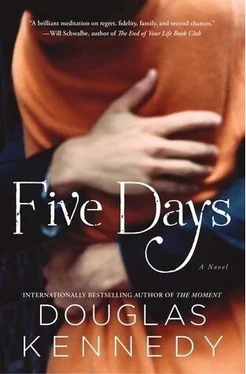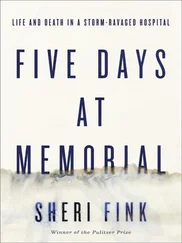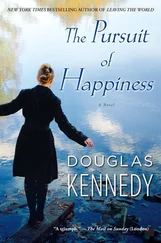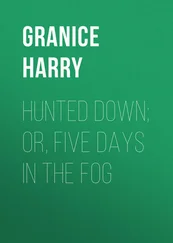Douglas Kennedy - Five Days
Здесь есть возможность читать онлайн «Douglas Kennedy - Five Days» весь текст электронной книги совершенно бесплатно (целиком полную версию без сокращений). В некоторых случаях можно слушать аудио, скачать через торрент в формате fb2 и присутствует краткое содержание. Жанр: Современная проза, на английском языке. Описание произведения, (предисловие) а так же отзывы посетителей доступны на портале библиотеки ЛибКат.
- Название:Five Days
- Автор:
- Жанр:
- Год:неизвестен
- ISBN:нет данных
- Рейтинг книги:3 / 5. Голосов: 1
-
Избранное:Добавить в избранное
- Отзывы:
-
Ваша оценка:
- 60
- 1
- 2
- 3
- 4
- 5
Five Days: краткое содержание, описание и аннотация
Предлагаем к чтению аннотацию, описание, краткое содержание или предисловие (зависит от того, что написал сам автор книги «Five Days»). Если вы не нашли необходимую информацию о книге — напишите в комментариях, мы постараемся отыскать её.
Five Days — читать онлайн бесплатно полную книгу (весь текст) целиком
Ниже представлен текст книги, разбитый по страницам. Система сохранения места последней прочитанной страницы, позволяет с удобством читать онлайн бесплатно книгу «Five Days», без необходимости каждый раз заново искать на чём Вы остановились. Поставьте закладку, и сможете в любой момент перейти на страницу, на которой закончили чтение.
Интервал:
Закладка:
‘Did that thought cross your mind?’
‘Variations on that theme.’
‘Like me with the French Foreign Legion when I was a teenager.’
‘Even though their all-male rule might have put a dent in your plans?’
‘Like you, it was all about dreams of leaving. But even my rather cool, distant mother at her chilliest couldn’t match your father. He was clearly beyond contemptible.’
The waiter arrived, asking us what we’d like to drink.
‘I’m not too knowledgeable about cocktails,’ I told Richard, ‘but I remember once drinking a very good manhattan on my one visit to New York.’
‘Then two manhattans,’ he said.
The waiter asked us if we preferred ours with bourbon or rye. We both professed ignorance. The waiter recommended Sazerac rye — ‘for a manhattan with a slightly more syrupy texture, but with a complex smoothness’. I could see Richard trying to keep a straight face.
‘“Complex smoothness” sounds fine to me,’ he said.
‘Me too,’ I added.
As soon as the waiter was out of earshot, Richard said:
‘It’s one of the more curious things about modern life: the amount of choice on offer. Back twenty years ago, rye was that cheap Canadian Club stuff my dad used to drink. Now there are probably two dozen different ryes on offer. Just as Scotch was always J&B, and wine was Gallo red or white. We don’t just live in a consumerist culture. We live in a wildly consumerist culture.’
‘But there are benefits to all that — like the fact that good coffee is a given just about everywhere. ’
‘Even in Lewiston?’
‘Poor Lewiston — the butt of all in-state Maine jokes. But I’m sure you can still find a decent cappuccino even there.’
‘And a decent rye manhattan?’
‘That might be a stretch. Maybe I’ll give up radiography to open a cocktail bar in Lewiston.’
‘And I know a good bankruptcy lawyer you can talk to when it all goes south.’
‘“O ye of little faith.”’
‘Matthew eight, twenty-six.’
‘That’s impressive,’ I said.
‘Another legacy from my father. A real Presbyterian. Scots-Irish — the most dour Celtic combination imaginable. No joie de vivre. A real Hobbesian view of the human condition.’
‘And I bet this is the first time that Thomas Hobbes was ever mentioned in this cocktail lounge.’
‘Let alone Matthew eight, twenty-six.’
‘Well, there’s a first for everything.’
‘And thanks to dear old Dad — who made me go to Sunday school for fifteen years — my brain is crammed with far too many scriptural references.’
‘Can you do The Book of Mormon as well?’
‘That’s a little beyond my realm of knowledge.’
I found myself laughing — and quietly realized that Richard, in his own canny, quiet way, had just managed to talk me out of the sadness that had overcome me in the taxi, simply by being smart and funny and interesting. And by sharing all that terrible stuff about his father.
‘I am so sorry for blubbering like that earlier,’ I said.
‘Never be sorry for that. Never.’
‘But I am. Because I was brought up by a mother who thought crying was something akin to a profound character flaw, and a dad who spent much of his life dodging any direct emotion whatsoever. So to cry, openly. I’ve managed to sidestep that one for most of my life. Until recently.’
‘And what changed recently?’
‘Good question,’ I said as the drinks arrived.
‘Hope you approve,’ the waiter said as he put the two cocktail glasses before us.
‘Here’s to. complex smoothness?’ Richard asked, raising his glass.
Hoisting mine I said:
‘How about. to us.’
Richard smiled. And touched his glass against mine.
‘I like that,’ I said. ‘To us.’
‘To us.’
I sipped the manhattan.
‘My word,’ I said, ‘dense libidinous fluency.’
‘Or. libational eloquence.’
‘Or. spiritous volubility.’
‘Or. no, I can’t top that,’ Richard said.
‘I bet you can.’
‘You’re wonderful, did you know that?’
‘Until this afternoon. no, I didn’t know that. And you’re wonderful, did you know that?’
‘Until this afternoon. ’
I raised my glass again to his.
‘To us.’
‘To us.’
‘And yes,’ I said, ‘I do find myself crying frequently these days. Half the time I think it’s about all the usual unsettling thoughts that arrive with middle age. But maybe it’s also about my husband. And about my children and all the stuff that seems to be blindsiding both of them all the time. Maybe also about the fact that my work now seems to impact on me in a way that it never used to. That’s what unnerves me the most — the loss of professional detachment.’
‘But surely that’s linked with all the stuff at home.’
‘When Ben had his breakdown. ’
Over the next half an hour or so, Richard got me talking in more detail about all that had befallen Ben; how his depression had only widened the gulf between him and his father, and the way he was inching his way back to some sort of stability.
The first manhattan cocktail was drained. And so was I.
‘I’ve talked far too much,’ I said.
‘Not at all.’
‘I’ve bent your ear.’
‘But I wanted my ear bent. And after having told you all about Billy this afternoon. ’
‘I’m not usually comfortable talking about personal stuff.’
‘But it’s about you. And I want to know everything about you.’
‘Can we ever know everything about another person?’
‘Everything? As in, the whole, the aggregate, the entirety?’
‘Or to be colloquial, all but the kitchen sink, the whole megillah.’
‘No, we can hardly know the corpus, the lot,’ he said, while motioning to the waiter to bring us two more drinks. ‘But if you are drawn to someone, surely you want to know about—’
‘Eric,’ I heard myself saying. As I said it, it struck me that, outside of this afternoon, when I mentioned his name, the word ‘Eric’ had been banished from my vocabulary. Outside of Lucy — to whom I told the story early on in our friendship — no one else knew about his existence. No one except Dan and my parents. But Mom and Dad never raised the subject of Eric — largely because they both knew it was something I didn’t want to talk about, let alone consider. And Dan dodged it completely — for all sorts of self-evident reasons. Even Lucy — having heard the tale — never made reference to it. She understood it was so off-limits. The forbidden topic.
But now.
‘Eric Lachtmann,’ I said. ‘A New Yorker. From Long Island. German-Jewish background. His grandfather was a jeweler in the Diamond District of Manhattan, his dad a CPA, his mom classic frustrated housewife territory. Two older brothers, both heading into business careers. And Eric — who had decided at the age of fifteen that he was going to be a Great American Novelist — also spent much of high school pursuing arty pursuits and not caring very much about class work, with the result that his college choices were not exactly prestigious ones. A couple of the better state universities in New York wanted him. He was wait-listed at Wisconsin. But — as he told me later — something about being “way up in the Maine sticks” really appealed to him. If I remember correctly, he told me that his decision was partially based on the fact that, during his senior year in high school, he’d been reading all those early Hemingway stories set up in northern Michigan — and had this romantic notion that landing himself into the boondocks was an essential part of his “writerly training”. Of course he was also planning to live in Paris, and travel overland to Patagonia, and get his first novel published by the time he was twenty-five, and marry me and bring me everywhere.
Читать дальшеИнтервал:
Закладка:
Похожие книги на «Five Days»
Представляем Вашему вниманию похожие книги на «Five Days» списком для выбора. Мы отобрали схожую по названию и смыслу литературу в надежде предоставить читателям больше вариантов отыскать новые, интересные, ещё непрочитанные произведения.
Обсуждение, отзывы о книге «Five Days» и просто собственные мнения читателей. Оставьте ваши комментарии, напишите, что Вы думаете о произведении, его смысле или главных героях. Укажите что конкретно понравилось, а что нет, и почему Вы так считаете.












